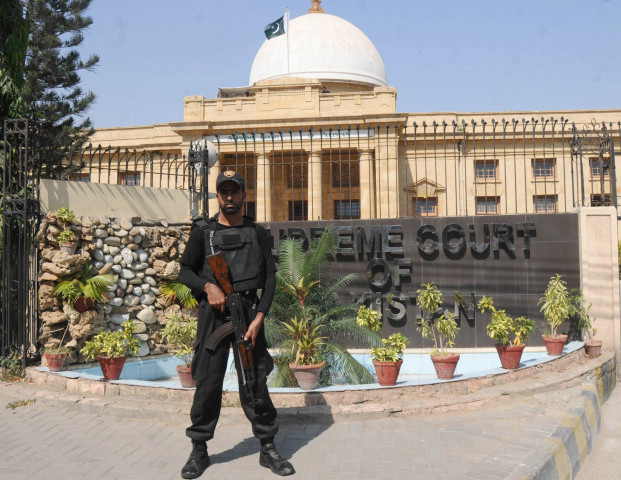Karachi violence: SC links unrest to illegal immigrants
Calls it a major trigger point for lawlessness in city.

Karachi violence: SC links unrest to illegal immigrants
The Supreme Court highlighted on Thursday the government’s failure in dealing with as many as two million illegal migrants in the country – a majority of whom reside in Karachi.
The apex court censured the government’s inaction over the serious issue, which, it added, was deeply rooted with the deteriorating law and order situation, particularly in Karachi.
A special bench of the apex court, comprising Justice Khilji Arif Hussain, Justice Sarmad Jalal Osmany, Justice Amir Hani Muslim and Justice Gulzar Ahmed, was hearing a case regarding the implementation of its recommendations in the Karachi violence suo moto case.
The court expressed its shock at learning that only 226 people were verified as living illegally in Karachi, while urging that the matter needed its due attention.
“It is a major root cause of the law and order situation in Karachi, and needs to be addressed,” Justice Jamali stressed, while adding that the country was already over-populated and could not even cater to the needs of its own people. “How, then, can these people be legalised,” he said.
The bench observed that it would make sense for a person whose family lives in the city to be concerned about the law and order situation, but one who has no interest in the city would perhaps have no concern in this regard.
“A person fleeing Uzbekistan, Burma, Tajikistan or Afghanistan enters Pakistan, and his [fake] citizenship papers are prepared within 15 or 30 days because there is no policy,” Justice Jamali pointed out, while directing the federal law officer to submit the government’s reply on what mechanisms were being adopted to document illegal migrants.
Meanwhile, Sindh police chief Fayyaz Leghari submitted a report to the court during Thursday’s hearing, stating that the police’s special branch along with National Database and Registration Authority (NADRA) officials were evolving mechanisms to verify the disputed nationalities of people living in the city.
He added that according to a joint survey, around 878 illegal immigrants – 670 Indians and 208 Afghans – were found living in Karachi without any documentation. He added that NADRA teams would visit these localities soon to get illegal migrants registered in its database.
Justice Jamali remarked that just 878 illegal immigrants were found living in the city, while thousands others are living without citizenship in settlements on the suburbs of Karachi.
Justice Osmany regretted that the government had not been taking any steps to include illegal immigrants into its database, adding, “They must be documented. If not, then give them amnesty like America.”
On the court’s query, the Sindh chief secretary said it was the duty of the federal, instead of provincial, government to deal with the issue.
The Sindh chief secretary, however, was directed to inform the court on the next date of hearing how the Sindh government was planning to handle the issue.
Published in The Express Tribune, October 26th, 2012.


















COMMENTS
Comments are moderated and generally will be posted if they are on-topic and not abusive.
For more information, please see our Comments FAQ